Humans
Sign up for our newsletter
We summarize the week's scientific breakthroughs every Thursday.
-
 Health & Medicine
Health & MedicineThe first known monkeypox infection in a pet dog hints at spillover risk
A person passed monkeypox to a dog. Other animals might be next, allowing the virus to set up shop outside of Africa for the first time.
-
 Health & Medicine
Health & MedicineCOVID-19 infections can rebound for some people. It’s unclear why
Rebounding COVID-19 isn’t limited to Paxlovid patients. An infection can come back even for people not given the drug.
-
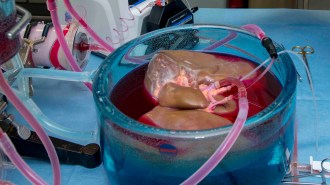 Health & Medicine
Health & Medicine50 years ago, scientists hoped freezing donor organs would boost transplants
In the 1970s, biologists hoped to freeze organs so more could last long enough to be transplanted. Scientists are now starting to manage this feat.
By Asa Stahl -
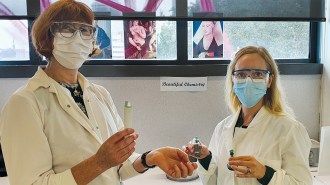 Chemistry
ChemistryThese researchers are unlocking Renaissance beauty secrets
An art historian has teamed up with chemists to uncover the science behind cosmetics used around 500 years ago.
-
 Humans
HumansWhy humans have more voice control than any other primates
Unlike all other studied primates, humans lack vocal membranes. That lets humans produce the sounds that language is built on, a new study suggests.
By Asa Stahl -
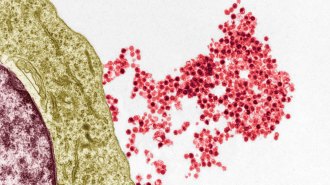 Health & Medicine
Health & MedicineMultiple sclerosis has a common viral culprit, opening doors to new approaches
Learning how the common Epstein-Barr virus may trigger multiple sclerosis could help experts design better treatments — or perhaps end the disease.
-
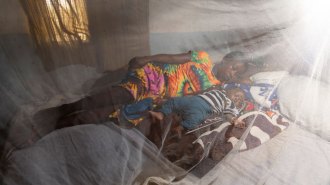 Health & Medicine
Health & MedicineA shot of immune proteins may protect against malaria for months
A monoclonal antibody for malaria passed an early hurdle and now will be tested in children in Africa, who are most at risk of dying from the disease.
-
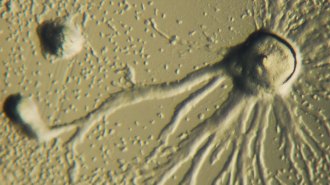 Health & Medicine
Health & MedicineTiny amoebas move faster when carrying cargo than without
A new study of the carrying capacity of single-celled amoebas may help scientists develop mini “trucks” to precisely target disease in the human body.
-
 Health & Medicine
Health & MedicineI think I have long COVID. What does that mean?
The condition comes with varying levels of severity and symptoms, making it hard to diagnose and treat.
By Anil Oza -
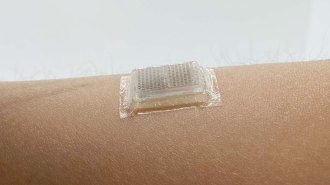 Health & Medicine
Health & MedicineThis stick-on ultrasound patch could let you watch your own heart beat
A new, coin-sized ultrasound probe can stick to the skin like a Band-Aid for up to two days straight, marking a milestone in personalized medicine.
By Asa Stahl -
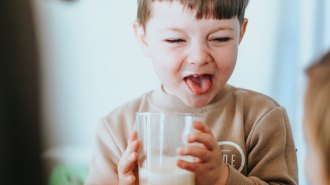 Anthropology
AnthropologyFamine and disease may have driven ancient Europeans’ lactose tolerance
Dealing with food shortages and infections over thousands of years, not widespread milk consumption, may be how an ability to digest dairy evolved.
By Bruce Bower -
 Climate
ClimateHumans may not be able to handle as much heat as scientists thought
Humans’ capacity to endure heat stress may be lower than previously thought — bad news as climate change leads to more heat waves around the globe.